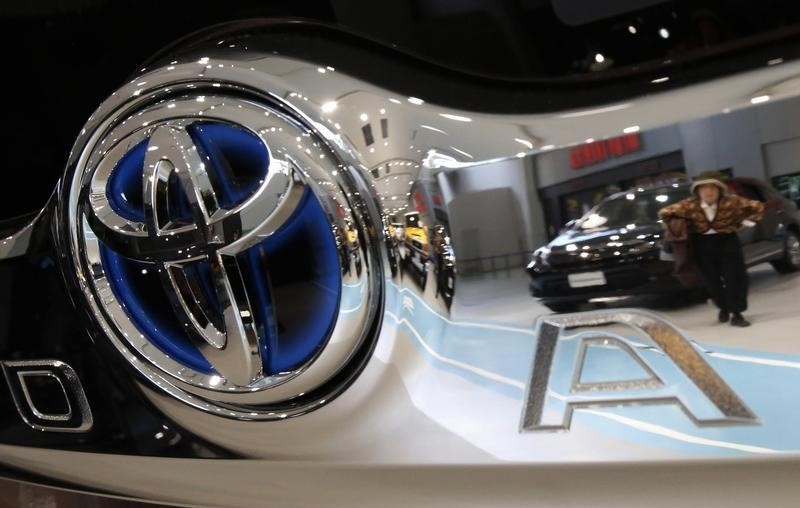By Naomi Tajitsu
TOKYO (Reuters) - Toyota Motor Corp (T:7203) said it was considering buying out the rest of minivehicle maker Daihatsu Motor Co (T:7262), a $3.1 billion deal at current market prices, but denied a report that it was in partnership talks with Daihatsu rival Suzuki Motor Corp (T:7269).
Shares in Daihatsu soared 16 percent after being overwhelmed by buy orders for most of the day. Shares in Suzuki jumped 11 percent despite denials from both Toyota and Suzuki. Toyota rose 3.8 percent.
Full control of Daihatsu could help Toyota leverage the lower-cost brand better and cut procurement costs for Daihatsu, while capital ties with Suzuki would help the world's largest automaker make inroads into India where Suzuki commands around half the passenger car market.
"We are constantly considering a number of possibilities relating to Daihatsu, such as partnerships or business restructuring, including making the company a fully owned subsidiary," Toyota said in a statement, but added that no decisions had been made.
Toyota owns 51.2 percent of Daihatsu, which like Suzuki, specialises in 660cc minivehicles, a segment particular to Japan, as well as compact cars.
Last year, Daihatsu was the weakest link in the Toyota group, which also includes the Toyota and Lexus brands and truck maker Hino Motors (T:7205).
Global sales for Daihatsu slid 13.3 percent in 2015, data on Wednesday showed. That pushed total Toyota group sales 0.8 percent lower to 10.15 million, although the group retained the title of the world's biggest automaker, beating Volkswagen's sales of 9.93 million.
The Nikkei business daily said that Toyota and Suzuki were discussing ties from a variety of angles, including the possibility of cross-shareholdings as they look to capitalise on demand for compact cars in India and other emerging economies.
Some analysts noted that greater control of Daihatsu could be at odds with potential cooperation with Suzuki given that the two minivehicle makers are fierce competitors for the same customers.
"I can easily see the Daihatsu brand used in the same way that VW uses Skoda or Renault (PA:RENA) uses Dacia or Nissan uses Datsun as a low-cost, sub-premium brand to the core brand," CLSA senior research analyst Christopher Richter said.
"That could be a very effective weapon against Suzuki in places like India ... if I were Suzuki that would sound like a risk to doing business with Toyota."
Still, others noted that a potential Toyota-Suzuki partnership could benefit both automakers.
Suzuki, through its control of Maruti Suzuki India Ltd (NS:MRTI), has a vast distribution network in India that Toyota could greatly benefit from.
"Suzuki would meanwhile be getting a stable shareholder in Toyota as well as access to Toyota's HEV/FCV and other next-generation environmental technologies geared toward future vehicle electrification," JPMorgan (N:JPM) analysts said in a note.
Suzuki is expected, however, to tread carefully with any new tie-ups. It formed a capital alliance with Volkswagen AG (DE:VOWG_p) in early 2010 but relations soon soured, leading to a years-long dispute in an arbitration court that ended last year with the unwinding of their cross-shareholdings.
($1 = 118.1000 yen)
